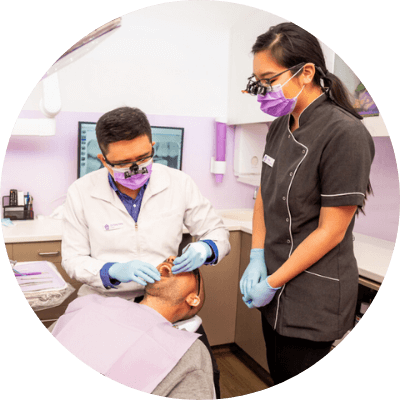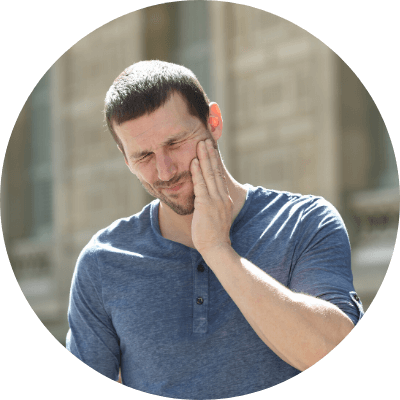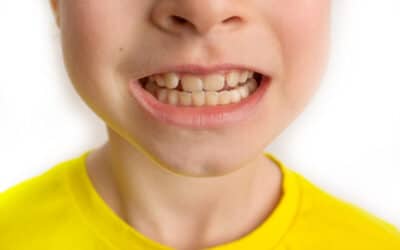Can Toothache cause Migraine and Why?
Can Toothache cause Migraine and Why?
Question: Can Toothache cause Migraine?
Indeed it can.
Almost all headaches and toothaches are detected by the trigeminal nerve, one of the largest nerves in the head. It’s this connection that causes the direct relationship between toothache and migraine, particularly if the toothache and headache are on the same side.
One thing’s for certain with migraine: you want to find the cause – and it could be in your mouth or jaw.
A throbbing pain, or any swelling around a tooth or gum is indicative of infection, which can most certainly create headaches or migraine. Perhaps the toothache is the cause of the headache; although a combined headache and toothache is also a symptom of serious sinus infection.
A bacterial infection, which can occur through injury, medical complications, a compromised immune system, or poor dental hygiene, can create a dental abscess in your tooth. Any untreated tooth infection carries the risk and the likelihood of the inflammation resulting in a migraine – a debilitating headache that is often accompanied by other discomforts, including nausea, vomiting and temporary blindness. Nose, throat, and ears are interconnected via a delicate network of passageways, canals, and tubes. An abscessed tooth commonly causes a severe and radiating pain that can reach behind either or both eyes, ears, and the sides of the neck.
The reason an abscess brings pain that simply cannot be ignored is because it can graduate into a critical and life-threatening condition. Undoubtedly, an abscessed tooth needs immediate treatment by a dentist.
Migraines can also be the result of what can feel like a toothache, but is in fact jaw pain. This can be from jaw clenching throughout the day, teeth grinding at night, or both. Two temporomandibular joints (TMJs) connect to the skull so that the jaw can jaw: opening and closing for talking, eating, and yawning.
Pain that starts in those joints or the muscles around them can travel to your skull and lead to migraine. It’s not always easy to know that you do these things, and they are frequently attributed to a life, or a period of life where stress is being overlooked and not managed in a useful way.
Indications of clenching or grinding include any flat, chipped or loose teeth; tooth sensitivity; face or jaw soreness or tightness; the sensation of having an earache, knowing there’s no issue with your ears.
Another cause of TMJ pain that can lead to migraine is a misaligned bite, which can happen when a tooth or teeth are missing, or as the result of nighttime breathing issues that require open-mouthed sleep. Over time, this position changes the optimal and natural jaw position, which often means particular muscles have to work harder to either compensate, or bring the upper and lower teeth together for proper chewing. Generally, because the pain is routine and incremental, migraine is often the timely trigger for seeking some kind of treatment or therapy.
Chewing gum can lead to TMJ pain, too; and ironically, sometimes it can relieve it. Too much chewing, too fast and too tensely strains the jaw. Like anything repetitious, whether it’s lifting a weight or recurring finger movements on a keyboard, pain and soreness can result.
The trigeminal nerve gives sensation to your face, upper and lower lip, gums, and teeth. It plays a significant role in migraine pathogenesis, and any underlying mouth, tooth or jaw issue impacts the supplying trigeminal nerve branches and results in migraine.
Persistent or frequent headaches and migraine can sometimes be treated more effectively by your dentist than your GP if the cause is elusive, whether they’re mildly irritating or cripplingly painful.
Living a migraine-free life that includes energy and enjoyment isn’t just all in your head when you seek expert diagnosis and treatment by your dentist.
Note: All content and media on the Sunbury Dental House website and social media channels are created and published online for informational purposes only. It is not intended to be a substitute for professional medical advice and should not be relied on as health or personal advice.
Services we mentioned:
More Dental Articles
Some Sweet News For Diabetes Sufferers With Gum Disease
Diabetes type 2 is a scourge for sufferers and those with it know that well. Here is some sweet news for diabetes sufferers with gum disease. A new study performed at the University of Buffalo School of Dental Medicine made some helpful findings in this regard. The...
Bruxism In Children: Is It Influenced By Screen Time And Sugar?
Children gnashing & grinding their teeth asleep in bruxism – a scene from a horror movie. Overstimulation of sensitive minds…
Let The New Year Bring New Commitment To Your Oral Care
If you can be inspired to make one new year’s resolution this year let it be for your dental health. Let the New Year bring new commitment to your oral care in 2024 and beyond. This is no mere dentist’s selfish wish but a call for an understanding about just how...
Having A Smart Mouthguard Is A Life Changing Game Changer
In early 2023, the top league of professional players in Australasia, the NRL, along with Football Australia, acknowledged before a Senate committee the link between head trauma and serious neurodegenerative disease. Representatives from the major Australian contact...














